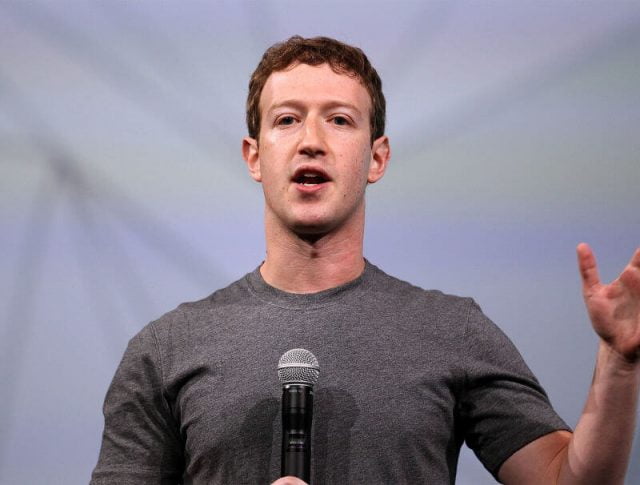After 5 full days of deafening silence, Mark Zuckerberg finally spoke up regarding the Cambridge Analytica scandal which made them lose $60 billion and the subsequent #DeleteFacebook movement.
Basically, a data science company illegally used private data of Facebook users to psychologically target them and influence them during the 2016 US elections in favor of Donald Trump.
You can read all about it here.
What you would normally expect from the head of a company which has been accused of something of such a massive magnitude that Facebook has, is an unconditional apology and sweeping reforms to overhaul the system that has caused the scandal.
In Mark’s statement, and a TV interview with CNN, where there were heavy notes of apology, he gave little assurance about fixing Facebook in a major way, instead he offered little changes, which might seem effective on the outside but in reality are nowhere near effective enough to curb the underlying problem.
Here is the full statement
https://www.facebook.com/zuck/posts/10104712037900071
The TV interview is almost the same as the statement.
The only difference is that he is more emphatic and remorseful and it really looks like he is apologetic.
Tl; DR: Mark talked about how they had already fixed many of the loopholes that allowed Cambridge Analytica (CA) to harvest user data. He also told us how they would implement new tools to help users revoke permissions to apps and how they would thoroughly audit developers to see what data they had and also make developers sign contracts in which they would have to agree to mandatory audits.
Although these steps are welcome and even necessary given the magnitude of recent events, they do little to reassure anxious Facebook users (myself included) about the safety and viability of the platform.
In 2015, when these allegations first came out, there was no major backlash and Facebook got away with calling it a data leak, effectively pinning the responsibility on the third party and the security of their systems and not the philosophy of the system which actually allows them to collect truckloads of data.
Also Read: Facebook Manipulates Its Users By Telling Them What To Think, Read & Watch
And that is what they are trying to do now.
Mark, in his statement, blamed Aleksandr Kogan, the psychology professor who developed the app that harvested the user data.
On Facebook’s responsibility, he simply said “Given the way our platform worked at the time this meant Kogan was able to access tens of millions of their friends’ data”
The truth is, Facebook needed apps like these to grow in the initial days. In an effort to gain and hold on to the loyalty of developers who were helping grow Facebook without being employed by it, Facebook decided to use the more valuable of the two currencies it had: user data. In fact, apps could access a lot of user data, some that they did not even require.
They allowed user data to be manipulated and harvested. Even though in 2014, they did tighten up their policies and restricted how much data developers could use, the damage was done. It was too little too late.
It showed and continues to show that Facebook puts its self-interest above that of its users and if given a choice between growth and user benefit, it would choose growth.
As Alexis Madrigal from The Atlantic writes
“Perhaps the most disappointing part of Mark Zuckerberg’s statement is his refusal to talk about why its data policies were structured the way they were. Who made these decisions and to the benefit of whom?”
Additionally, Zuckerberg also said in his statement that they had asked Cambridge Analytica to delete this data in 2015 and that CA had formally “certified” that the data had been deleted. This, however, was not the case, as was reported by UK’s Channel 4. They did not even bother to check up on whether the data was actually deleted or not. Such callousness! And after this huge scandal, suddenly now they begin to implement measures to audit developers.
This fast and loose approach with a company that has for sure violated user’s privacy and Facebook’s policies really speak a lot about Facebook’s commitment towards its users and making sure their privacy is respected and safeguarded.
In the end, that’s what it boils down to, Facebook’s refusal to admit that there is something fundamentally wrong with the way it operates. It’s basic data policies are never debated upon and explained away as being helpful in improving the user experience.
They mock their users by making policies that clearly benefit the company but are marketed as being user-friendly. They deploy tools that draw users and make them stick to the platform so that they can commodify them to further their profits. And at the end of the day, when a scandal comes to light, they wring their hands, point fingers and do lip service, instead of actually creating sound measures that befit a corporation of their size, stature, and power.
Mark’s statement was a pitiful attempt at defending a social media ideology that is increasingly under attack. The promises that he made are the bare minimum and might not even be enough. This callous attitude is already driving people away and could sound a death knell for the giant.
That, however, remains to be seen. As of now, let us watch the drama unfolds as an irate user base attacks Facebook, on Facebook (and Twitter).
Sources: The Atlantic, Wall Street Journal, Slate
Image Source: Google Images
Featured Image credits: All India Bakchod
You would also like to read:
http://edtimes.in/2018/03/deletefacebook-why-facebook-lost-60-billion-while-you-were-sleeping/





































